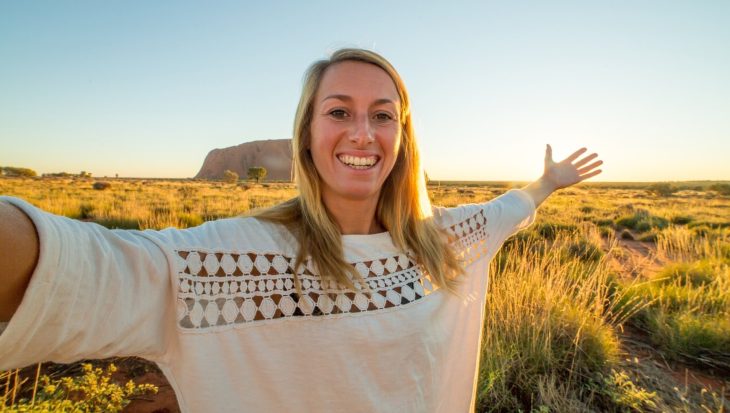Are you an Australian tourism operator looking to stay ahead of the competition?
Discover the latest trends in content marketing that can help you engage your audience and boost your business.
From collaborating with influencers to creating personalised experiences, this article will provide you with valuable insights to enhance your marketing efforts.
Learn how video storytelling, user-generated content, and voice search optimisation can create memorable experiences for your customers.
Don’t miss out on these effective strategies that will set you apart in the tourism industry.
Key Takeaways
Stay updated with the latest content marketing trends to attract and engage your audience. For tourism operators, implementing effective strategies such as collaborating with influencers, utilising video storytelling, incorporating user-generated content, creating personalised experiences, and optimising for voice search can help your business stand out in a competitive market.
By adopting these trends, operators can develop compelling and tailored content that resonates with travelers, leading to increased bookings and stronger customer relationships.
Don’t miss out on these exciting opportunities to enhance your content marketing efforts and stay ahead of the competition.
Influencer Collaborations
In the world of content marketing for tourism operators, a highly effective strategy to consider is collaborating with influencers. Partnering with social media influencers has become a powerful tool for promoting tourism businesses and attracting new customers. By working with influencers who have a large following and a strong presence on platforms like Instagram and YouTube, tourism operators can tap into a highly engaged audience and generate authentic and relatable content.
When partnering with influencers, it’s important to choose individuals who align with your brand values and target audience. Look for influencers who have a genuine interest in travel and a passion for exploring new destinations. By collaborating with influencers who have a similar target audience as your business, you can leverage their influence to reach a wider audience and increase brand visibility.
One of the biggest advantages of influencer collaborations is the ability to create engaging and authentic content. Influencers have a unique ability to connect with their followers on a personal level and create content that resonates with their audience. By partnering with influencers, tourism operators can tap into their creativity and storytelling skills to showcase their destinations and experiences in a relatable and compelling way.
Video Storytelling
Incorporating video storytelling into your content marketing strategy can greatly enhance your efforts. Visual storytelling through videos has become increasingly popular and effective in engaging audiences. By using this medium, you have the opportunity to create emotional narratives that resonate with your target market.
Visual storytelling is a powerful tool because it combines visuals, audio, and storytelling elements to create a captivating experience for viewers. Through videos, you can showcase the unique aspects of your tourism offerings in a visually appealing and emotionally impactful way.
Emotional narratives play a crucial role in video storytelling. By tapping into the emotions of your audience, you can create a connection and leave a lasting impression. Whether it’s showcasing the breathtaking beauty of a destination or telling the heartwarming stories of the people who’ve visited, emotional narratives help create a memorable experience for viewers.
When creating video content, it’s important to focus on crafting a compelling story that evokes emotions. Consider using real-life testimonials, stunning visuals, and a captivating narrative to engage your audience and inspire them to take action.
Incorporating video storytelling into your content marketing strategy can help you differentiate yourself from the competition and forge a deeper connection with your audience. So, make sure not to miss out on the opportunity to create visually stunning and emotionally compelling videos that will leave a lasting impression on your viewers.
User-Generated Content
To make the most of your content marketing strategy, incorporate user-generated content (UGC) to showcase the genuine experiences of your audience. UGC refers to any content created by consumers, such as photos, videos, reviews, or social media posts. This type of content has become a powerful tool for tourism operators, allowing them to tap into the creativity and enthusiasm of their customers.
One effective way to leverage UGC is through brand partnerships. Collaborating with influencers or popular social media personalities encourages them to share their experiences with your brand. This not only expands your reach but also adds credibility and authenticity to your content. When users see their favorite influencer enjoying your product or service, they’re more likely to trust and engage with your brand.
Social media platforms provide the perfect avenue for sharing and promoting UGC. Encourage your audience to use a specific hashtag when posting about their experiences, and then curate and feature the best content on your own social media channels. This not only validates and recognises your audience but also serves as social proof for potential customers.
Incorporating user-generated content into your content marketing strategy allows you to connect with your audience on a deeper level. It creates a sense of community and authenticity that traditional marketing methods often lack. So, embrace UGC and let your customers become your brand ambassadors.
Personalised Experiences
Create personalised experiences for your audience by incorporating customised elements into your content marketing strategy. In today’s competitive tourism industry, travelers are seeking more than just a generic experience. They desire something that caters to their individual preferences, interests, and needs. This is where tailored recommendations and customised itineraries play a crucial role.
When you offer personalized experiences, you demonstrate that you truly understand your audience on a deeper level. By gathering data on their past behavior, preferences, and demographics, you can create content that directly speaks to their specific interests.
For instance, if a traveler has shown a preference for adventure activities in the past, you can suggest thrilling excursions and provide insider tips for adrenaline enthusiasts. Conversely, if a traveler is more interested in cultural experiences, you can design a customised itinerary that highlights local traditions, historical sites, and authentic cuisine.
Personalised experiences not only enhance the traveler’s journey but also increase their satisfaction and loyalty towards your brand. They feel valued and understood, fostering a strong connection between them and your business.
By incorporating customised itineraries and tailored recommendations into your content marketing strategy, you can attract new customers, retain existing ones, and ultimately, drive more revenue for your tourism operation.
Voice Search Optimisation
Incorporating voice search optimisation can greatly enhance personalized experiences for your audience in the tourism industry. With the increasing popularity of voice assistants like Siri, Alexa, and Google Assistant, more and more people are using voice commands to search for information and plan their travels. By optimising your content for voice search, you can ensure that your business is easily discoverable and accessible to these users.
An important aspect of voice search optimisation is the use of long tail keywords. Unlike traditional search queries, voice searches are more conversational and natural. Therefore, it’s crucial to incorporate long tail keywords that reflect how people speak in real life. For example, instead of targeting the keyword ‘best hotels in Paris,’ consider using a long tail keyword like ‘What are the best hotels to stay in Paris?’
Voice assistants also play a significant role in voice search optimisation. When users perform a voice search, they rely on voice assistants to provide them with accurate and relevant information. To optimise for voice assistants, ensure that your content is structured in a way that voice assistants can easily extract information. This includes providing concise answers to common questions and organising your content in a logical and user-friendly manner.
Staying updated with the latest content marketing trends is essential for tourism operators who want to attract and engage their audience. Collaborating with influencers, using video storytelling, incorporating user-generated content, creating personalised experiences, and optimising for voice search are effective strategies that can help businesses stand out in a competitive market.
By adopting these trends, operators can develop compelling and tailored content that resonates with travelers, leading to more bookings and stronger customer relationships.
Don’t miss out on these exciting opportunities to enhance your content marketing efforts and stay ahead of the competition.




